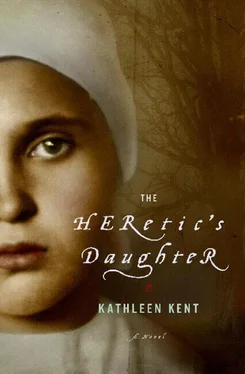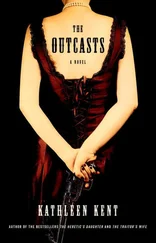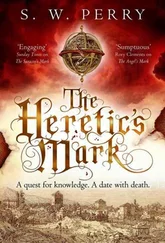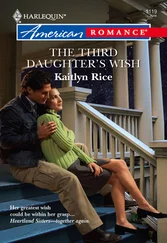I looked at the sky but saw no stars, only clouds that would bring many weeks of snow before winter would end.
CHAPTER THREE
April 1691–August 1691
THE STRUGGLE AGAINST the smallpox had left its mark on my family in many ways beyond a pitting of the skin. Only Father retained his vitality and continued to press himself in caring for the livestock and hunting for days at a time in the surrounding woods. On those early mornings when he moved across the fields alone, his flintlock strapped to his back, the world leeched of all colors save for white and black, he looked like a towering elm walking upon the snow. He would return in the evening with a hare or fox hanging from his belt. At times he returned with his belt empty and we went to bed with our stomachs gnawing at our backs.
I don’t know what my mother must have thought the day Hannah and I were returned by wagon to Andover and she was greeted by my hard-set face and Hannah’s fright over seeing this now-forgotten woman. But there was little time to brood, as my first days home were filled with bringing the house to rights, boiling rags and clothes in vinegar and lye to kill the evil humors lurking in the folds of the cloth and behind buttons and clasps. The sickness had taken what little patience my mother possessed and, however much I scrubbed or boiled or swept, she found in me shortcomings to shame a pope. I did not yet know that, like fermenting ale left too long in its keg, restrained sorrow will turn towards anger.
I had promised Aunt that I would be a good and compliant daughter, but within a few days, there were Lucifer sparks between my mother and me. I searched the house for signs of my grandmother’s presence, but her dress and bedclothes had been burned, her cot by the fire broken into pieces for kindling. She had left me her shawl and, after it had been boiled and scrubbed, I wore it round my shoulders like an embrace. I cried for her goodness lost to me so soon, and it was at these times that Mother took pity and left me to mourn her passing. At night in my bed, I held Hannah close and imagined Margaret’s breath, warm and moist, on my neck. The rancid smell of sickness still cloaked the house, and to my regret, my first thoughts on seeing my brothers’ wasted bodies brought shame. Watching my father escape into the brilliant cold wash of snow made me wish to be a boy and leave the fear of contagion behind.
MAY CAME FIRST with storms and then with a great heat all at once. On the first of the month I sat in the shadows of the house, holding a skinning knife in one hand and waving away with the other flies that hovered over the corpse of a bear Father had felled earlier that morning. He had killed it with a clean shot through the neck, leaving the head intact. The brown milky eyes remained open in death, and his fixed gaze seemed to regard me thoughtfully, as though he did not begrudge our use of him. Another hunter would have bragged about killing a bear weighing twice that of a man and shot at a distance of twenty feet. A charging bear can run the distance of twenty feet in the count of ten. And knock a skull from its backbone in the count of two. But as Father hoisted the bear to a brace for the bleeding, I heard him recounting the story to Richard as though he had bagged a pair of geese.
It had taken my father and brother most of a day to take the wagon to Falls Woods and return again with the bear. Father stood close by, feeding the flames under the giant pot he would use to render pounds of fat from the meat. The meat would be dark and rank but it would dry better than beef and last longer than buck. When we had scraped the skin and combed the burs from the fur, it would make a warm winter coverlet for Mother’s bed. Father strongly believed in the curative powers of bear fat and would use it for everything from greasing the cart wheels to a poultice for Tom’s chest. Mother would add mustard seeds to the fat, heat it until it bubbled, and spread it on my brother’s chest before covering the stinking mixture with lamb’s wool. The blisters soon turned to scars but his breathing would ease.
I lifted my head to spy on Hannah playing nearby in the shade and saw Tom and Mother broad-hoeing the garden. They were planting corn, beans, and squash all in the same mounds together. The corn would grow tall and straight as a pole. The beans would vine the corn towards the sun and the squash would grow in the shadows below. Tom looked up at me and smiled, but his eyes had the look of Abraham’s son upon the altar, full of trust but somehow knowing the blade of sacrifice must come. He had grown bent and stooped in the space of months and was pitifully thin, the bones of his wrist jutting out at odd angles. Had it not been for the Reverend Dane and the Widow Johnson laying food at the doorstep, my family would have starved.
Andrew followed slowly behind, placing the precious seeds on the mounds and pushing them in with an unsteady finger. As he planted he sang in a voice reedy and thin a song he had heard Mother hum in the garden many times before.
One for the squirrel, one for the crow,
One for the cutworm and one to grow.
He had been much affected by the smallpox that kept him near death for three months. His face would forever be scarred and it would signify to the world that he would never again be at risk in falling to the disease. But his mind, which was reluctant to thoughts before the illness, had slowed to a crawling pace and would scatter like a flock of birds before completing a sentence. He would often stop speaking mid-word and walk away, leaving the listener unclear of his meaning or intentions.
I sat staring at my hands, shining and slippery with bear grease, thinking of Margaret’s hands over mine as we sat together sewing. Father called out to me to stop gathering wool and finish my work. I brushed away the biting flies and made a deep cut across the bear’s corded muscles to pull out another bit of fat. Seeing the fur stripped away from the bloodied flesh brought back the dream of the Indians bending over Andrew’s bed. And in that moment I knew with a certainty that it was Andrew who had brought the breath of contagion to Andover. Thirteen people, my grandmother among them, had died wearing to the grave the Devil’s rosy bridal bouquet on their flesh.
The selectmen had ordered that we leave Andover at the end of our isolation, but the Reverend Dane spoke passionately in our favor, as it was Grandmother’s last wish that we stay and care for the Allen farm. Because the Allen name was one of the oldest in the settlement, and because Reverend Dane begged for it, the selectmen bowed reluctantly to his wishes. But we stayed in Grandmother’s house mainly because my mother refused to go. Mother’s stubbornness would be deeply resented by our neighbors and, in particular, the new young minister of Andover, Reverend Thomas Barnard. He had for some time waited impatiently for the older man to step down and was thwarted as, year after year, Reverend Dane ascended the pulpit and preached to the congregation, taking half of the younger man’s salary. If ever there needs to be proof that a minister is a corruptible man and not a glistening saint, take away half his pay.
At Grandmother’s burying, Reverend Barnard had said to Mother, “Goody Carrier, it says in Romans that he who rebels against the given authority is rebelling against what God has ordained and those who do so will bring judgment upon themselves.”
And without a pause my mother coolly responded, “And does not First Peter say rid your selves of hypocrisy, envy and slander lest it bring to ruin the defiler?” From that moment Reverend Barnard would wish us gone forever.
I carried the heavy bucket of bear’s meat to the fire, where Father poured it into the cauldron for rendering. We stood for a moment near the flames as he stirred the mass of flesh and fat until the smell rose up, making my stomach growl with hunger. His face was deeply lined but ruddy, the sickness passing him over without so much as the kiss of fever. I slipped my hand into his, and though he squeezed my fingers with a calloused palm, his face looked as remote and guarded as ever. Since my return I had not seen him shed one tear for my grandmother. But it was not my father I resented. It was my mother I blamed for bringing me back, separating me from my cousin.
Читать дальше












